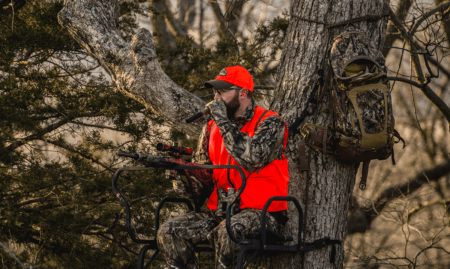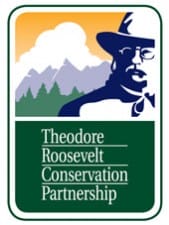
WASHINGTON –-(Ammoland.com)- Hunters and anglers are hailing a new congressional bill introduced by Rep. Martin Heinrich of New Mexico as a way to maintain and expand sportsmen’s access to the public lands that provide key fish and wildlife habitat and offer unequaled opportunities for hunting and fishing.
The Hunt Unrestricted on National Treasures Act, or HUNT Act (H.R. 6086), would direct federal agencies to inventory all public lands greater than 640 acres where hunting and fishing are legal but inaccessible. Introduced Monday, the bill calls for improving access and would finance land acquisitions from willing sellers through a small percentage of Land and Water Conservation Fund monies.
“Surveys conducted over the last few years show that, for the first time ever, access trumps Second Amendment rights as hunters’ No. 1 priority,” said John Gale, a regional representative for the National Wildlife Federation. “This important legislation by Congressman Heinrich will set a course that secures access to places like New Mexico’s iconic Sabinoso Wilderness while also ensuring the health of wildlife habitat and water quality.”
The funding provided for in the HUNT Act “gives the plan some legs” and means that hunters will see immediate impacts, Gale added.
Ensuring sportsmen’s access to public lands also will sustain vital sectors of rural economies across the country. Numerous studies detail the economic importance of hunting, fishing, recreation, and tourism on public lands. A report released Monday shows that last year, the Interior Department supported 403,000 jobs and contributed nearly $49 billion in economic benefits through recreation and tourism on public lands.
“If passed, the HUNT Act will directly benefit millions of American sportsmen and the nation’s powerful outdoor recreation economy,” said Joel Webster, director of the Theodore Roosevelt Conservation Partnership’s Center for Western Lands, “and we appreciate Representative Heinrich’s leadership in introducing the measure.
“A recent poll of Western voters identifying as sportsmen shows that a majority supports upholding measures conserving clean air, clean water, natural areas and wildlife,” continued Webster, “and more than nine in 10 agree that public lands are an essential part of their state’s economy. To this end, the TRCP and our partners remain dedicated to advancing efforts that enable conservation of and access to these invaluable public resources.”
A report issued late last year by the National Fish and Wildlife Foundation found that hunters, anglers and wildlife watchers spent a combined $137.4 billion in 2006.
“The HUNT Act provides a missing link to ensuring that sportsmen across the nation will be able to access quality hunting and angling opportunities on all of our public lands,” said Gaspar Perricone, co-director of the Denver-based Bull Moose Sportsmen’s Alliance. “Public lands access is a keystone of many rural economies throughout the West as well as a critical piece of our hunting heritage and western traditions. We applaud Congressman Heinrich’s understanding and leadership of sportsmen and -women.”
“Across America, we’ve seen far too many traditional hunting and fishing habitats locked behind gates and no-trespassing signs. This bill will help fix that problem,” said Ben Long, co-chairman of Backcountry Hunters & Anglers. “Public lands are the birthright of all Americans, not just those fortunate enough to buy acreages and spools of barbed wire.”
“Public lands, which provide large blocks of unfragmented wildlife habitat and healthy watersheds, are essential to sustaining the big-game herds and world-class fisheries prized by anglers and hunters,” said Keith Curley, Trout Unlimited director of government affairs.
All of the sportsmen’s groups look forward to working with Representative Heinrich and federal agency partners to implement plans that enable everyone’s enjoyment of the nation’s treasured landscapes.
About Theodore Roosevelt Conservation Partnership

